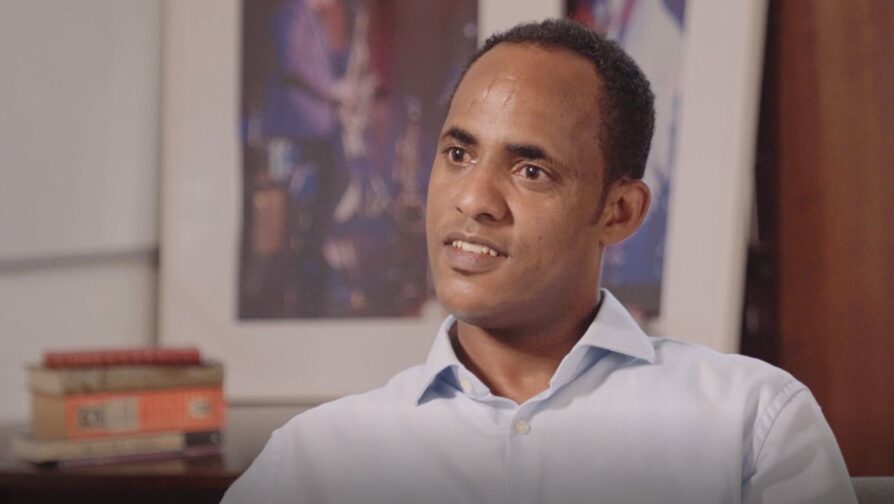Keen to explore the dynamics of integration, a Malta-based refugee from Eritrea meets five Maltese people from different walks of life and asks them about the impact refugees and asylum-seekers have had on them
Originally from Eritrea, Mebrahtom has been living and working in Malta for the past eight years, forging a bond with the island thanks to his friends and colleagues, and the integration initiatives made available to him.
In this video – a collaboration between UNHCR Malta and LovinMalta – Mebrahtom meets with Maltese people who have worked with and alongside refugees and asylum seekers in some capacity.
In conversation with a member of the clergy, theatre practitioners, activists and social workers, Mebrahtom draws from his own experience to explore both the challenges and joys of integration, and how to strengthen it on the island.
‘We are all human’
As he tells Mebrahtom, working with refugees helped Junior College chaplain Fr Bernard Micallef consider “humanity in a broader way”, giving him a keener understanding of what different geographical and socio-political contexts entail. But this very fact also serves a reminder that “we’re all human”, and that anyone person who enters into a community shares that fundamental similarity with all of its members.
It’s a universal sentiment that bears repeating, and it certainly echoes among the rest of Mebrahtom’s interviewees.
“What is important is that we see each other as equal, but we must not be colour-blind, because every person has their own needs,” Syrian-Maltese activist and social worker Omar Rababah tells Mebrahtom, before adding that he strongly believes every person – no matter where they’re from – would have something to contribute to Maltese society.
Learning from each other
In fact, as Francesca Zammit from the community theatre Teatru Salesjan tells Mebrathom, refugees and asylum-seekers are certainly “already part of our community”, and that what’s needed for integration efforts to be successful is for the local population to open their eyes to their plight, and extend a helping hand.
Because as LGBTIQ activist Alex Caruana says, “We learn from each other… in the sense that, there are beautiful things in everyone’s culture”.

Putting things into perspective
But this process is not just about sharing mutually pleasant aspects of one’s culture and background. Prompted to speak about the impact that refugees and asylum-seekers had on him, Caruana makes a sobering observation. “It made me realise that life is not fair, nor equal”, with Rababah echoing a similar sentiment – “I realized just how lucky I am to have been born in a country where I can live out a relatively normal life”.
Challenges and solutions
All of Mebrahtom’s interviewees agree that mutual respect and empathy between the host community and refugee arrivals would go a long way in helping integration efforts. But being open to learning remains a key part of this process, as Caruana potently illustrates. “Some people may think that [refugees and asylum-seekers] simply arrive to Malta, get handed a smartphone by the government, and everything is okay… but of course, that’s not the case.”
Zammit agrees that there are plenty of obstacles which refugees and asylum-seekers face when attempting to adapt to life in Malta in the long-term. Apart from the more direct problems like linguistic and cultural differences, Zammit also mentions how a lack of immediate guidance from one’s family and peers can serve as a stumbling block. “The fact that you don’t have a family around you who could support you, and who would have gone through this experience and could give you this sort of information.”
Julienne Schembri, Zammit’s colleague at Teatru Salesjan, suggests that creating wider opportunities for encounter and exchange between refugees and the host community is a key element of strengthening integration efforts across the board.
Finally, Fr Micallef distils both the challenges and solutions down to their essentials, when asked to consider what is at the root of successful integration efforts. “Understanding each other… and respecting each other.”
Watch Mebrahtom’s interviews in full
This video was produced as a collaboration between UNHCR Malta and Lovin Malta.
Share on Facebook Share on Twitter